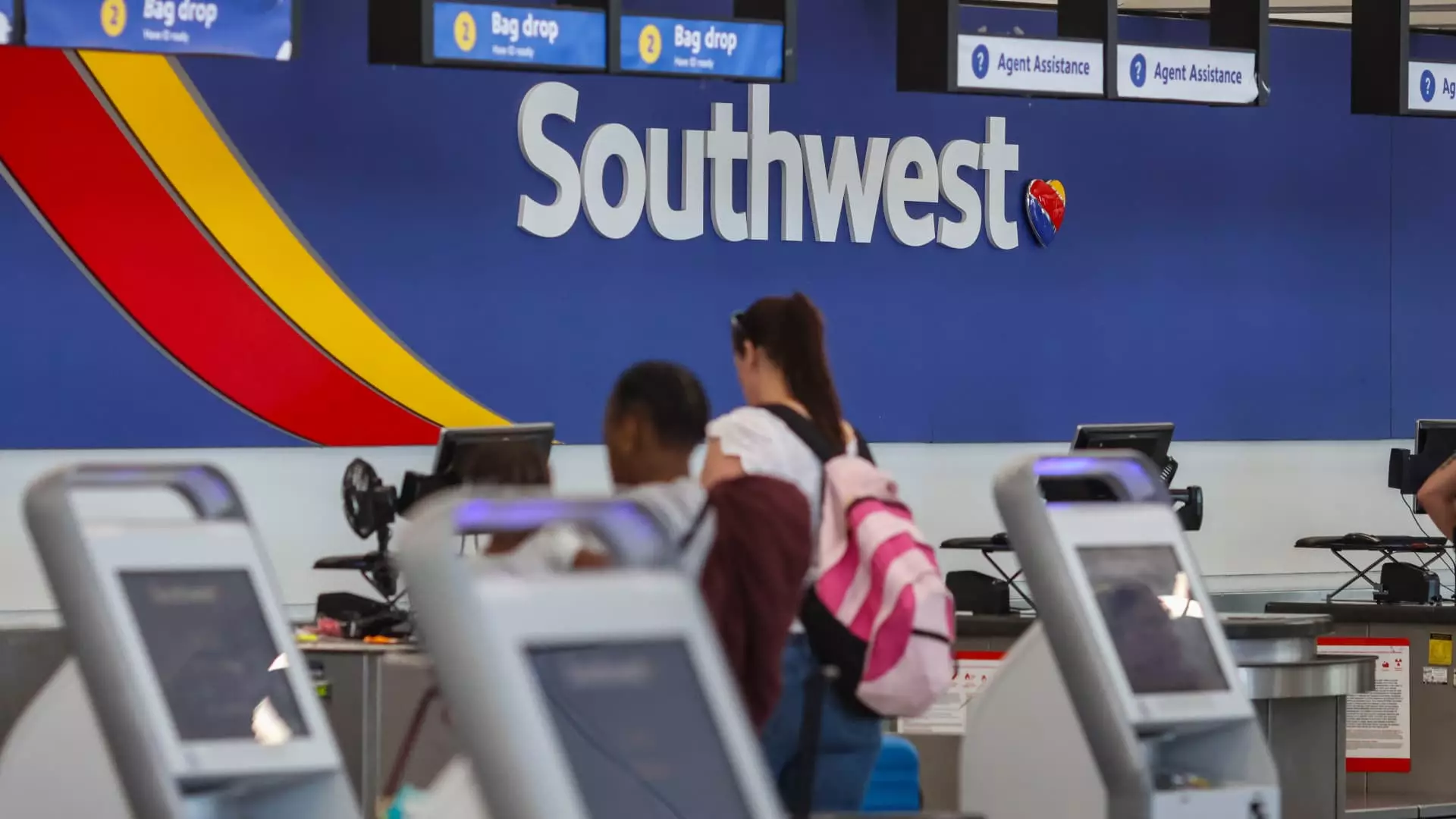Southwest Airlines has recently unveiled a plan to significantly reduce its operations in Atlanta, which includes a considerable cut in pilot and flight attendant positions. According to internal communications obtained by CNBC, the airline intends to eliminate over 300 crew roles as part of an effort to regain financial stability. This decision comes against the backdrop of an increasing push from activist investor Elliott Investment Management, which has been advocating for enhanced financial performance and strategic growth from the airline. Rather than shutting down its crew base in Atlanta, Southwest will maintain its presence but will require its workforce to adjust and potentially relocate to different cities for their positions.
In a striking move, Southwest plans to decrease its gate usage at Atlanta’s airport from 18 to 11, which directly correlates with a scaling back of the flight services offered. The airline is set to reduce its coverage from 37 cities currently serviced to just 21 by spring of the following year. A memo highlighting this change, sent out by the pilots’ union, indicates dramatic adjustments in service levels that will invariably impact the travel options available to consumers. This is a notable transition in service strategy, as the airline navigates through the complexities of an evolving market landscape.
Southwest has assured its staff that the layoffs will not involve outright dismissals; instead, employees will be able to place bids for positions at other airports. This approach reflects an attempt to protect the workforce as much as possible while still confronting the need for operational efficiency. In the company memo, executives explicitly stated, “This decision in no way reflects our Employees’ performance,” emphasizing that the changes are a product of broader economic challenges rather than a critique of employee effort. The airline recognizes the dedication of its Atlanta-based crew, highlighting their commitment to customer service, which suggests a cultural emphasis on employee morale even amidst tough choices.
Notably, while the airline reduces its footprint in Atlanta, it also plans to expand operations in other regions, signaling an adaptive strategy in response to customer demand. Nashville, Tennessee is set to receive a boost in service, showcasing a shift in focus toward markets perceived as more profitable. Additionally, Southwest recently introduced overnight flights departing from Hawaii to several mainland cities, including Las Vegas and Phoenix, beginning in April. This expansion of services appears to be a counteracting strategy to offset losses anticipated in Atlanta, thereby demonstrating Southwest’s efforts to leverage its operational capabilities more effectively.
The turbulence faced by Southwest Airlines is reflective of broader trends affecting the aviation sector. The airline grapples with fluctuating demand patterns and oversaturated markets, particularly in certain areas of the United States. Furthermore, issues related to aircraft supply chain disruptions, particularly in relation to delays with Boeing’s 737 Max 7, have exacerbated existing problems, prompting the airline to reassess and realign its operational strategies. COO Andrew Watterson’s remarks regarding the necessity for “difficult decisions” underscore the gravity of the situation and the urgent need for strategic realignment.
Southwest Airlines is navigating a complex operational landscape characterized by financial scrutiny and evolving market dynamics. The decision to downsize in Atlanta while expanding in other regions illustrates a dynamic response to current challenges, indicative of the airline’s broader goal to restore profitability and enhance operational efficiency. As the aviation sector continues to evolve, the path that Southwest charted may serve as a critical case study in adapting to change while striving for resilience and sustainability.

